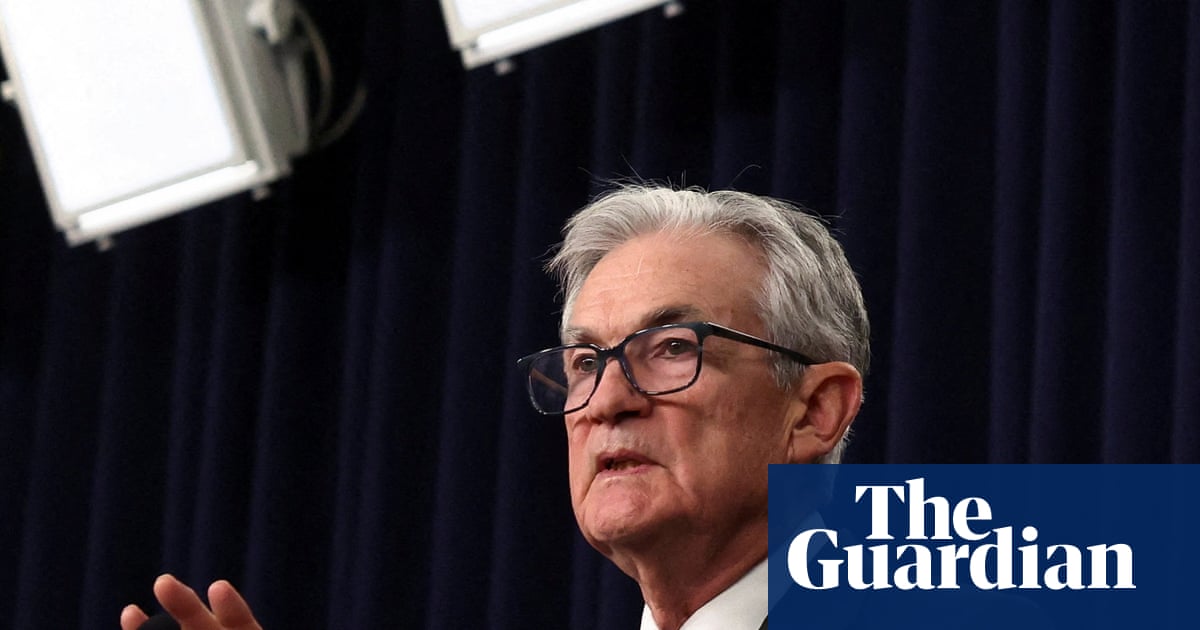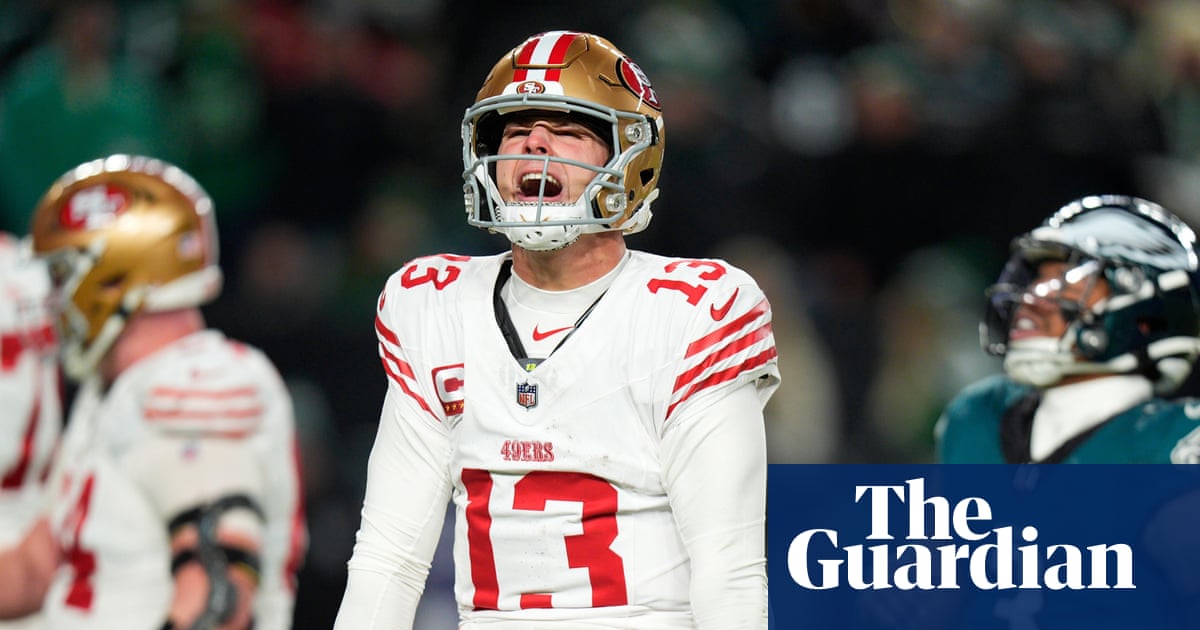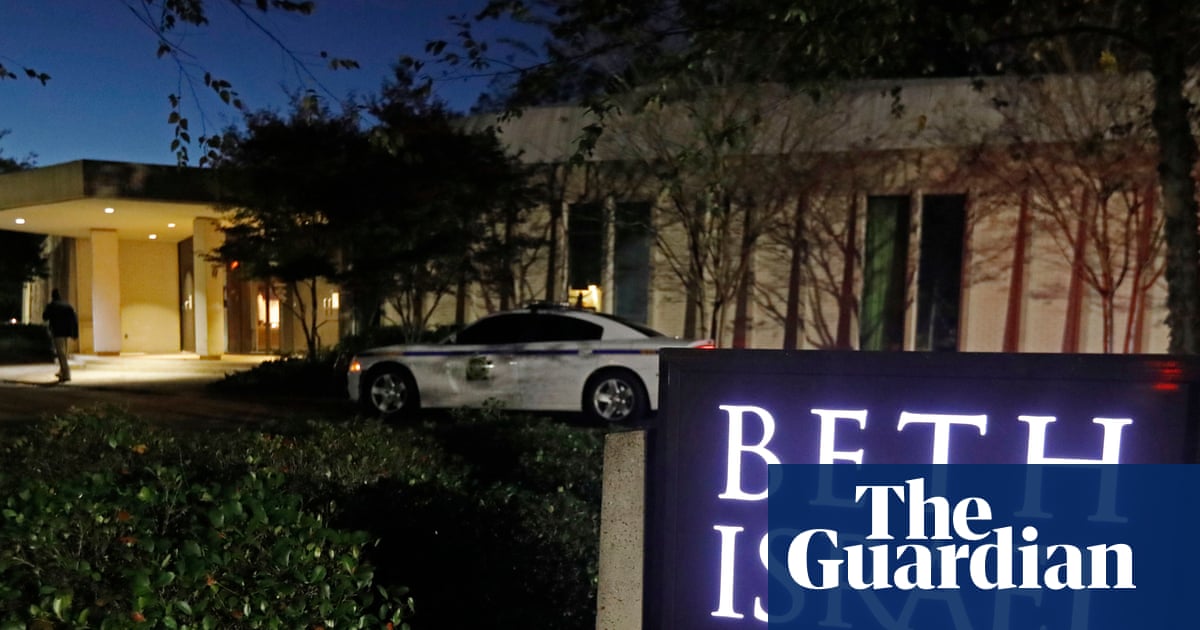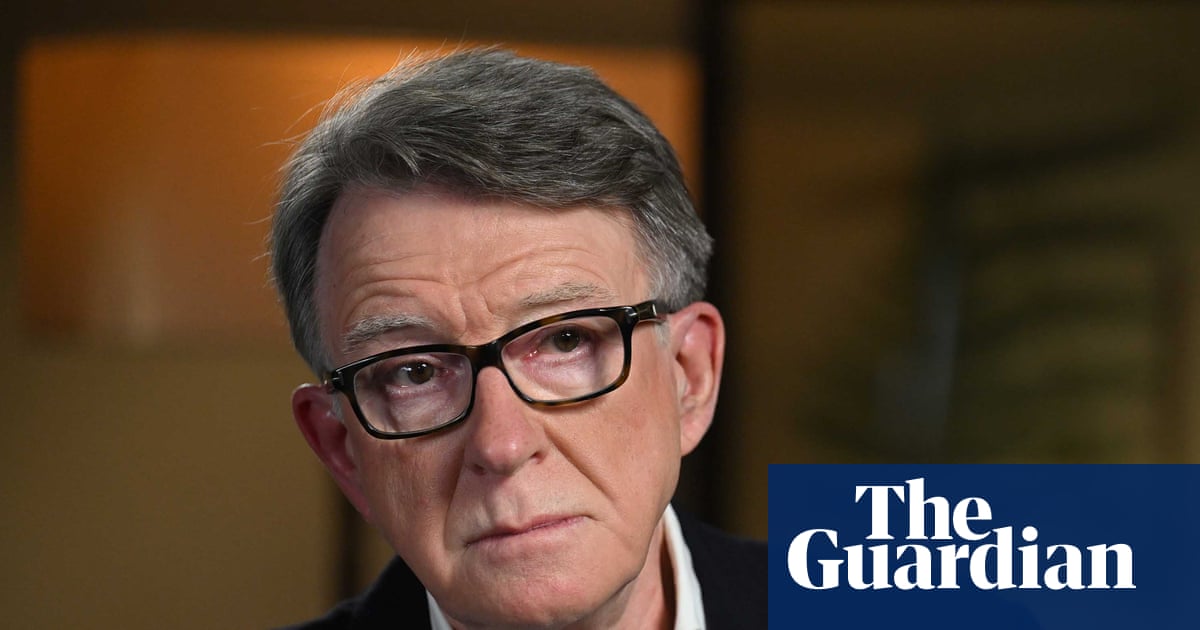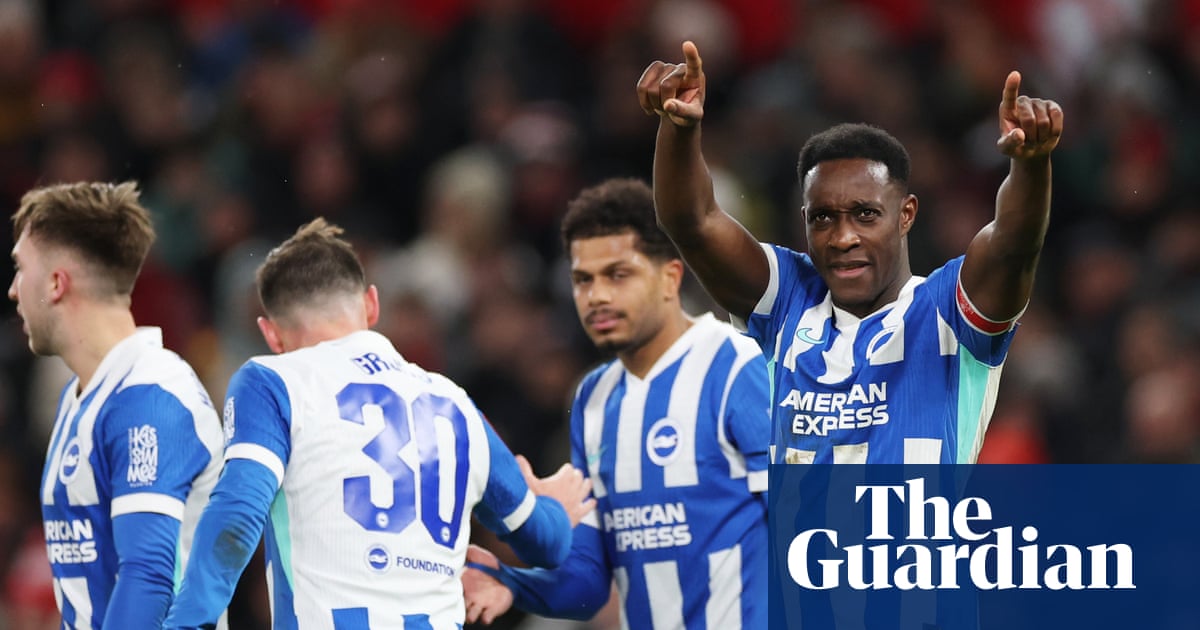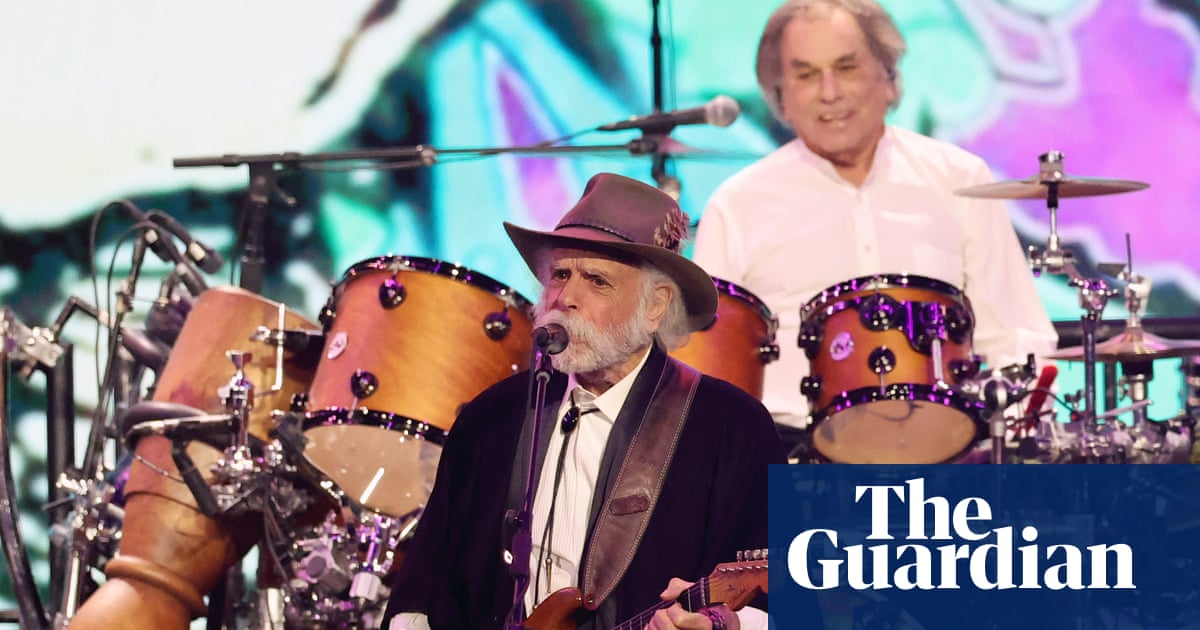When Andy Burnham addressed a gala dinner this week, he was as coy as he could have been in a week when speculation about his future ambitions were in overdrive. “I love this job,” the mayor of Greater Manchester said. “I am very happy where I am. I have no ambition to be … ambassador to Washington.”
It was a gag that got a big laugh. Burnham has never played the game of pretending that he doesn’t seek to enter No 10. But he also does not give the standard ambitious politician’s response of saying that no vacancy is available.
Instead, he takes a more honest approach: that he would not have run twice to be leader of the Labour party if he didn’t want the job. Over the years, he has left Keir Starmer in no doubt that he hopes to one day to succeed him.
But no one – including Burnham – thought the question would come this soon. Starmer’s government has plunged in popularity, Nigel Farage’s Reform is on the rise, a huge Commons rebellion on welfare has weakened the prime minister – and three scandals in a fortnight have seen a deputy leader and ambassador depart.
After a summer dominated by Farage, more and more MPs have begun to believe their salvation lies north. They range from socialist MPs who admired Burnham’s anti-factionalism, to centrist new-intake MPs who see what he has done for growth in Greater Manchester.
“His politics are now firmly at the progressive heart of the Labour party,” one Labour insider said.
His closest friend in politics these days, the mayor of Liverpool city region, Steve Rotheram, says the last seven years have been the making of Burnham. “I’ve known him for 18 years. I saw the way he started to shape politics once he left Westminster,” he said. “Before that, politics was starting to shape him.”
Neal Lawson, the chief executive of the thinktank Compass, which co-founded the new Labour grouping Mainstream, which Burnham has endorsed, said the mayor now “feels comfortable in his own skin and beliefs. I think that’s instantly attractive whether you’re on the left or the right.”

He believes that Burnham is the most plausible successor should Starmer fail. “There is no perfect leader, but in the existential crisis we’re facing with the threat of the far right and the decline of the Labour party, a good leader is enough,” he said.
Allies say Burnham is ready to run, and is just waiting for the right opportunity.
Burnham v the machine
There are still huge hurdles for the so-called “king of the north” to lead an army south to take Westminster – but there are potential openings. Burnham would need a parliamentary seat as a first step towards a potential leadership run. One has just become potentially available.
The Guardian understands that the Gorton and Denton MP, Andrew Gwynne, who was suspended from Labour and now sits as an independent, had applied on grounds of ill health for medical retirement from the MPs pension fund. However, sources said that he had not proceeded with the claim. It is unclear why. Gwynne has not responded to requests for comment.

Burnham is said to have told one well-placed MP earlier this year that he and Gwynne had reached an agreement. But his allies deny that he has had any conversations with MPs about stepping down to make way for him. “There is no pact,” one insisted.
Parliamentary sources suggested there could be other opportunities on the horizon, with at least two Manchester MPs sacked during the reshuffle said to feel disgruntled towards the leadership. “You close one door, another one opens,” a source said.
The next hurdle Burnham faces is far greater: he would have no guarantee of the nomination should he decide to try to return to Westminster in a byelection.
Burnham’s ambitions are not the only reason he would face a struggle against the machine. There is a deeply fractious relationship between Burnham and the prime minister.
Starmer was Burnham’s deputy when he was shadow home secretary. In 2020, Starmer travelled up to Manchester to ask for support with his leadership bid, according to the biography of Starmer by Tom Baldwin. The mayor said no. He felt he should throw his weight behind one of the two local MPs standing, Rebecca Long-Bailey or Lisa Nandy.
Starmer, who, according to friends, does not like asking for things, was furious. The relationship has not recovered, but the animosity was deepened by the Labour conference of 2021, when Starmer was struggling during the Tories’ “vaccine bounce”.
Burnham’s face was everywhere, hinting at his leadership ambitions. “It was intolerable,” the aide said. Burnham at the time said anyone offended should “be less sensitive, I guess” about his attempts to start conversations about the party’s lack of vision.
Now, as Starmer’s Labour government struggles against an insurgent right, Burnham has been at the front of the launch of Mainstream, calling for “a more inclusive, less factional way of running the party”. It is designed to press for change in the way Labour operates, though it could be turned into a leadership vehicle.
Another complication: Burnham’s selection as a candidate – should a byelection occur – is in the hands of Labour’s national executive committee.
Starmer’s chief of staff, Morgan McSweeney, has been able to ruthlessly control selections up until the election. But blocking Burnham would be a different magnitude of controversy – and Lucy Powell, a close ally of Burnham, will take a spot on the NEC if she becomes deputy leader. His fate, however, would ultimately determined by a three-person NEC panel – who could be chosen for their loyalty.
“Of course it’s possible to block him. They would just take a huge political hit doing so,” one sceptical MP said. “Letting Andy Burnham in after caving to pressure from their own moaning MPs, just to have him mount a leadership challenge would be very on-brand for this inept No 10.”
Even if Burnham does win any selection, Gwynne has told friends that he worries that, in the current climate, Reform UK could win the seat. The mayor’s friends are more bullish. “Andy is a big beast in his own right, and people in Greater Manchester know he is on their side, whatever they think of the Labour party nationally.”
Left, right and centre
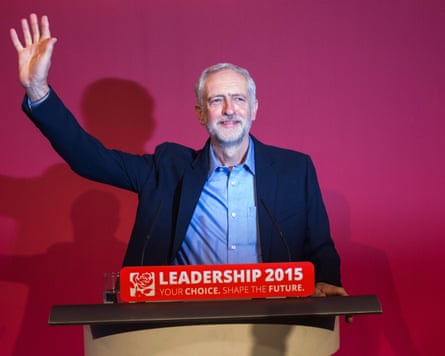
As a young political adviser, and then a minister, Burnham had a reputation as a Blairite but when Ed Miliband was leader he began to push left. “He would complain that we were too much Hampstead and not enough Hull,” one contemporary said.
As one of Miliband’s senior frontbenchers, Burnham played an instrumental role in what came next. During the reform of the leadership election rules in 2014, he “pushed very hard” to bring down the threshold of MP nominations to qualify to 10%, from the original proposal of 20%, complaining that the higher barrier would prevent him from running in future. It would have also, it turns out, prevented Jeremy Corbyn from running.
His second campaign for leader in 2015 was a pivot, one that is “almost painful to recall”, says one backer. In what was a major right turn, he launched his campaign at Ernst & Young, accompanied to the podium by Rachel Reeves, now Starmer’s chancellor.
He told a crowd of assembled businessmen that entrepreneurs “will be as much our heroes as the nurse”, pledging to scrap the mansion tax policy and saying there should be an early EU referendum.
It was an obvious wrong turn. One perhaps born of the fact that, his parliamentary backers saw his potential weak spot as being seen as too far left. It was rumoured that Burnham-backing MPs were told to nominate Jeremy Corbyn, who could run to his left in order to cast Burnham as a centrist. It was a catastrophic misreading of the party membership.
When Corbyn won, Burnham was the only other leadership candidate to serve in his shadow cabinet. He stayed loyal and was not one of the frontbenchers who resigned en masse in 2016 to try to force him out. Instead, the same year, he stood down from parliament and successfully ran to become the first mayor of Greater Manchester.
In almost a decade as mayor, the city under Burnham has been a great success story for devolution. It is one of the few parts of the country with economic growth. He has used new transport powers to create the Bee Network of buses now fully under the control of the authority, designing it for users rather than profit.
But it was his defence of the city during Covid which really won him recognition as an independent thinker and a fighter.
The other cause which has been the making of Burnham has been his tireless campaign for the victims of the Hillsborough disaster. To cynics, it was only taken on after he was booed at Anfield at a memorial service as culture secretary, when the government was still resisting a full inquiry. Burnham himself acknowledges that was a turning point; he raised the issue at cabinet within days. It was the first step towards the inquiry that would ultimately reach the verdict of unlawful killing.
Back to the ‘bubble’
In parliament there remain a number of high-profile MPs who remain close to Burnham, the former cabinet minister Louise Haigh as well as Powell, and other friends in the cabinet such as Lisa Nandy and Jonathan Reynolds. He has considerable loyalty from MPs across the political spectrum in Greater Manchester – but also in Liverpool and surrounding constituencies.
One group that has long been warming the idea of an Andy Burnham run is the Socialist Campaign Group of MPs – which once would have been called Corbynites. But others, including new Labour MPs in the Labour Growth Group, are attracted to the idea of a popular northerner at the helm, with the experience of running a major city where there has been significant economic growth.
Those latter MPs however are just as likely to be turned off by any close association with the former. Burnham will appear at a Labour conference event next week with several key leftwing rebels, including Lewis, Nadia Whittome and Rachael Maskell.
“The hardcore welfare rebels are already behind him – he needs to urgently move to build a broader coalition across the PLP or he’s not going to be an MP, much less carry the numbers for a challenge,” one senior Labour source warned.
Many of his friends say that should Burnham return to Westminster, they know he would find the confines of Whitehall deeply frustrating. “I wouldn’t do it for anything,” said Rotheram. “I don’t think the Westminster bubble is a healthy way to do our politics, too many distractions, too many lobbyists, but what I would say is that having our experience is a great advantage.
“If Andy ever did decide to come back down, he would have the incentive to change that, to change the whole way politics is delivered in this country. That’s a big decision for him given where he currently is.”

 3 months ago
73
3 months ago
73

